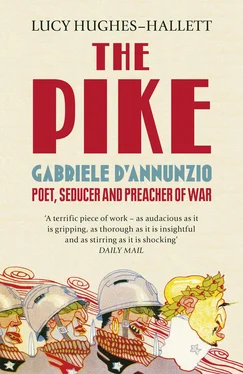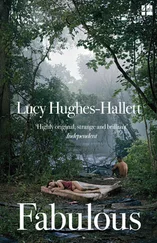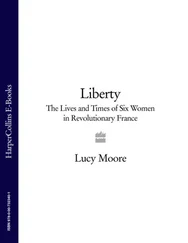Faith shaped the culture into which he was born: faith in the Christian God and his saints; faith in magic. As an adult, d’Annunzio would embrace modernity and all its racket, but he grew up in a world where the sounds were made by sheep and cattle, creaking carts and rustling straw. The Abruzzi was, in the 1860s, and to an extent remains, a place apart. Blocked off by the Apennines from the great cities of Italy’s western seaboard, it is bounded by bald mountains, where bears and wolves still live, and in whose foothills walled towns perch on crags fluted like the underside of mushrooms. From there the terrain slopes gradually to the Adriatic, across which Abruzzese mariners have, for centuries, traded with their counterparts on the eastern, Dalmatian shore. The land is edged by low cliffs or, near Pescara, the region’s capital and d’Annunzio’s home town, by flat sand and pine woods (most of them now felled to make way for beachside hotels). Returning in middle age, d’Annunzio was moved to be back among the stone walls, the low hills scattered with flowering trees. ‘A painted cart passes along the shore, drawn by a pair of white oxen. The sandy soil sloping down to the sea is ploughed almost to where the waves break. Rows of beans. Vines contorted like arthritic old hands. A blackened stack of straw. Parsimony, diligence … The mountain rearing grand above.’
All of this (especially the parsimony) d’Annunzio would put firmly behind him. But though he left the Abruzzi in fact, in his fiction and memoirs it was ever-present. He liked to hear its dialect. In middle age, at the height of his fame, he hired a fellow Abruzzese to be the steward of his household. He sought out its landscapes. At Marina di Pisa during his years in Tuscany with Duse, and at Arcachon on France’s Atlantic coast during his ‘exile’, he chose to live by pine-fringed beaches resembling the Adriatic coastline he had known as a boy. He wrote about the place repeatedly. And the aspect of it which charged his imagination most potently was the religious life of its inhabitants, a phenomenon he found both repugnant and fascinating.
In remote villages the church was not only a place of worship, it was the community’s totem, on whose decoration much hard work and devotion and the peasants’ meagre savings were lavished. Troops of pilgrims passed along the country paths ‘in profile as in the embroideries of our old bedspreads’. During d’Annunzio’s childhood an itinerant priest, known to his followers as the Messiah, wandered the region, wearing blue tunic, red cloak and wooden clogs, and calling on the people to leave their crops and herds and follow him. Hundreds did so, singing and begging their way from town to town. ‘A wind of fanaticism’, wrote d’Annunzio later, ‘ran through the land from one end to the other.’
In the Abruzzi, houses are modest and great churches scarce. The most remarkable monuments in the region are the high mountain hermitages – caves or crevasses in which solitary mystics lived a thousand or more years ago and around which their devotees have, over the centuries, constructed precarious shrines. In defining the kind of stock he came from d’Annunzio borrowed their image. ‘I come from an ancient breed,’ he wrote. ‘My ancestors were anchorites in the Maiella … They flagellated themselves till the blood came … They throttled wolves; they stripped eagles of their feathers, and they scratched their seals on giant rocks with the nail Helen took from the Cross.’ Lacking – to his enduring chagrin – the kind of aristocratic antecedents he gave his fictional heroes, he awarded himself membership of another kind of elite, that of the ferociously holy.
D’Annunzio’s father, Francesco Paolo, was far from being an anchorite. He was a petty landowner and wine merchant. During Gabriele’s childhood he was the Mayor of Pescara, a prominent man in a provincial town. In d’Annunzio’s first stories, set in or around Pescara, he conjures up a place where the bustle of port and barracks and market are contrasted with the frustration of women confined to small, dark rooms, who watch the life of the street through chinked shutters or small high windows. The church bell clangs out the hours. Priests pass in the streets carrying extreme unction to the dying. Young people, strictly segregated as a rule, furtively press up against each other in the merciful darkness when the church lamps are extinguished in Holy Week to mark Christ’s passion. Funerals, the bier followed by long lines of hooded mourners, their faces covered all but a slit for the eyes, or processions of girls in sacrificial white on the way to their first communion, provide the town’s main spectacles.
The sacred is all-pervasive. In the bedroom Gabriele shared with his brother, the main item of furniture, other than the beds, was a prayer stool. On the wall hung lithographs of religious paintings by Titian and Raphael. In one of d’Annunzio’s novels, set in the Abruzzi, a woman lightly remarks that before she and her lover can enjoy an afternoon in bed they will have to hang veils over the numerous saints’ pictures on the walls. God and his representatives were all around the boy d’Annunzio, and they were not a comfort so much as a form of surveillance.
Francesco Paolo d’Annunzio was a man of the flesh – self-indulgent and corpulent. In later life d’Annunzio was repelled by him (not least because he saw his father’s disorderly love life and compulsive overspending as a horrible caricature of his own); but in childhood he yearned to please him. Francesco Paolo’s extravagance could seem grand. During carnival he would stand on his balcony and, as custom demanded, toss handfuls of gold and silver coins down to the revellers in the street, deeply impressing the small son who would, in his turn, spend most of his life throwing his money away. Francesco Paolo liked a show and he liked to astonish (both attributes Gabriele inherited). He used to colour his white doves with the new-fangled aniline dyes, and released them to fly – pink, green, purple, orange – around the house’s inner court.
Gabriele was his parents’ darling. His father used to watch him gravely. ‘He never made light of me, nor ever mocked me.’ He had a brother (who became a musician and a swindler, before emigrating to America) and three sisters. But he was the prodigy, the little prince. He adored his mother, Luisa de Benedictis, mainly, as he tells it, because of the gratifying way she adored him: ‘Her glances made my heaven.’
The house was full of women – maids, his sisters, unmarried aunts, his grandmother – and he was everyone’s precious treasure. When ladies came to visit his mother he would sit on his own little stool in the middle of their circle, while they gazed at him admiringly as at ‘a rare beast’. Sent away to boarding school at the age of eleven, he wrote nostalgic letters home in which he conjured up luminous images of his early childhood, scenes that might have been lifted from accounts of the infancy of saints. ‘Do you remember how when I was little I used to come first thing in the morning into your room all sparkling with joy, and I used to bring you flowers? … No shadow of a cloud ever troubled my happiness.’
Actually, there were shadows. To live in the countryside (as the d’Annunzio family partly did – they had a second house, the Villa Fuoco, on their land outside town) was to be exposed to gory realities. Many of the stories d’Annunzio related about his childhood concern dying animals. There was the death of his little Sardinian horse, a bay with a white muzzle named Aquilino, whom he would feed with apples and sugar lumps in the peace of the night-time stable. There was the quail the farm manager gave him in a cage made of twigs. Half a century later d’Annunzio could still recall how the tiny creature dashed itself against its makeshift bars, gashing its head until the bone showed. On killing days the howling of the stuck pigs and their blood spurting into basins so appalled him that he would hide in a corner, face to the wall, his hand over his contorted mouth. ‘Life scared me as though it stalked me with a pig-sticking knife in hand.’ After the ‘massacre’ he sobbed all night.
Читать дальше












